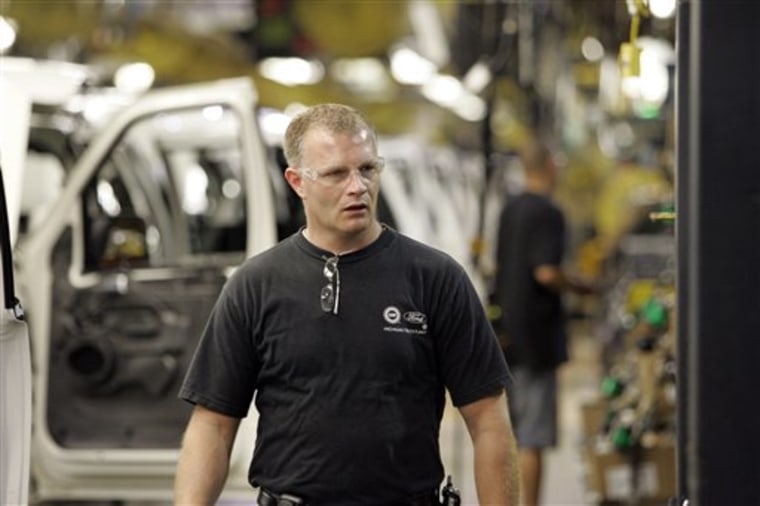As he walks along a row of partially built sport utility vehicles, Curtis Giles is watching the overhead signs, hoping for green but looking for red letters that could spell trouble.
He's a union guy with what could be a management job, helping production workers at Ford Motor Co.'s Michigan Truck plant solve problems and keep quality as high as possible as Lincoln Navigators and Ford Expeditions slowly move down the assembly line.
But this summer, life is different inside the hot, sprawling 2.9 million-square-foot plant west of Detroit that once made the big sport utility vehicles almost around the clock. And things have changed dramatically for the worse at Ford since the early part of the century when demand for profitable SUVs was almost insatiable.
Michigan Truck is down to one shift and has about 1,400 hourly employees, producing about half of the 1,000 SUVs it made daily back in the good times. Ford has fared about the same, borrowing billions to restructure as gas prices rose and consumers shifted from its SUVs and trucks to more fuel efficient models.
At the age of 40, Giles is confident in the vehicles his plant turns out, but he has worries. He's afraid the trucks the plant make will end with the 2009 model year, although Ford isn't saying anything about their future. Giles isn't totally sure about his pension like he once was, and yes, it bothers him that his company is living on loans.
"Whenever we have to borrow money, that kind of scares us," Giles said.
That's why he urges fellow workers to keep track of costs, because he says it's necessary to help the company.
When he started with Ford 19 years ago, Giles said he knew it was a good, stable job that would help support his family. Giles, who is married and has three children ages 21, 18 and 17, lives in a nice community near a lake about 60 miles north of the plant.
He now makes around $30 per hour plus overtime. Early on, it was always reassuring to him that he'd have a secure pension, but with Ford's financial troubles, he's not so sure any more.
"I didn't think I'd ever have to worry about that," he said.
Now he hears conversations between salaried people with the same fears, although Ford says its pension plan for UAW workers is close to fully funded at present.
His union, the United Auto Workers, has steadily lost clout and membership in the U.S., dropping from 1.5 million members in 1979 to just over 500,000 today.
He worked at a different plant when he started with Ford, and he says now there's more pride in putting out a quality product, and the workers are better trained than in the past.
Giles said his children have watched the auto industry's decline and don't see themselves following their father onto the assembly line. He has encouraged them to go into health care, but only one child has done that so far. His oldest daughter is in banking and her sister is studying to be a nurse.
His son, while taking coursework in heating and air conditioning, still wants to work for Ford, Giles said.
Still, Giles is optimistic that his plant will get a new product and he'll have a job well into the future. Workers at the plant recently approved a competitive operating agreement allowing work rule changes that make it more competitive.
And he figures there always will be demand for large SUVs from people with large families, those who like the safety of a bigger vehicle or people who want to tow boats, campers and other things.
"GM still has a huge share that we're hoping to take some of that back," Giles said. "I think even after 2010 we'll have something. It's just not on paper yet."
